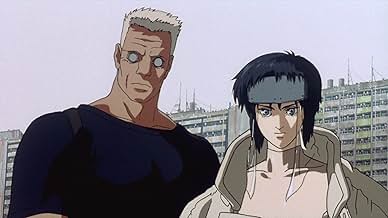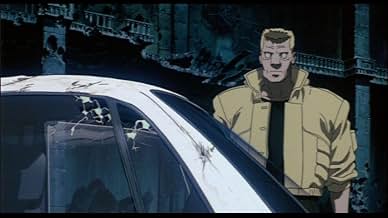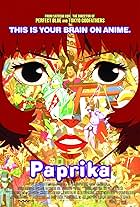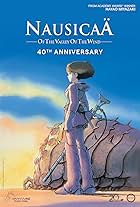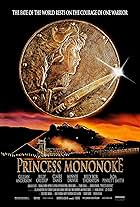A cyborg policewoman and her partner hunt a mysterious and powerful hacker called the Puppet Master.A cyborg policewoman and her partner hunt a mysterious and powerful hacker called the Puppet Master.A cyborg policewoman and her partner hunt a mysterious and powerful hacker called the Puppet Master.
- Awards
- 5 wins & 7 nominations
Atsuko Tanaka
- Kusanagi Motoko
- (voice)
Iemasa Kayumi
- Ningyô tsukai
- (voice)
Akio Ôtsuka
- Batô
- (voice)
Kôichi Yamadera
- Togusa
- (voice)
Yutaka Nakano
- Ishikawa
- (voice)
Tesshô Genda
- Nakamura buchô
- (voice)
Namaki Masakazu
- Urisu hakase
- (voice)
Shinji Ogawa
- Gaikôkan
- (voice)
Mitsuru Miyamoto
- Daida Mizuho
- (voice)
Kazuhiro Yamaji
- Seisô kyokuin
- (voice)
Shigeru Chiba
- Seisô kyokuin
- (voice)
Hiroshi Yanaka
- Kenshi-kan
- (voice)
Ginzô Matsuo
- Ossan
- (voice)
Takashi Matsuyama
- Jikkô-han
- (voice)
Sanryô Odaka
- Gishi
- (voice)
Masamichi Satô
- Untenshu
- (voice)
- Director
- Writers
- All cast & crew
- Production, box office & more at IMDbPro
Storyline
Did you know
- TriviaIn ordinary anime, characters would at least blink to create the feeling of "being animated", but in this movie, Motoko's eyes intentionally stayed unblinking many times. Director Mamoru Oshii's intention was to portray her as a "doll".
- GoofsThe car underneath the spider tank changes in size relative to the tank between shots.
- Quotes
Major Motoko Kusanagi: If we all reacted the same way, we'd be predictable, and there's always more than one way to view a situation. What's true for the group is also true for the individual. It's simple: Overspecialize, and you breed in weakness. It's slow death.
- Alternate versionsThe original Japanese version has the song "Reincarnation" played over the ending credits. This song was replaced with "One Minute Warning" by Passengers (a collaboration between U2 and Brian Eno) for the English version.
- ConnectionsEdited into Wamdue Project: King of my Castle (Roy Malone Remix) (1999)
- SoundtracksSee You Everyday
Composed and Arranged by Kenji Kawai
Lyrics Pong Chack Man
Vocals Fang Ka Wing
Chorus Junko Hirotani
Featured review
Upon Ghost in the Shell's release in 1995, the Western world was still largely unfamiliar with manga, but had already had its head turned by Katsuhiro Ohtomo's Akira (1988). Blending philosophical musings with blistering action, Ghost in the Shell captured the imagination of it's new audience, helping kick-start the Japanophilia that runs so blatantly through most modern Western cartoons and lines the bookcases of many a teenager. While it certainly has its flaws, this was the first time that casual Western audiences who were new to manga had seen a cartoon be as meditative as is explosive. And for those that didn't catch it, no doubt they would have watched The Matrix (1999) four years later, a film that arguably 'borrows' a lot more from Ghost in the Shell that it lets on.
In the future, technology has become so far advanced that all aspects of life are interconnected through an electronic network. Major Motoko Kusanagi (Atsuko Tanaka), a soldier working for government agency Section 9, is a cyborg, and is able to access this network through plugs in the back of her head. She and her team are assigned to catch an elusive 'ghost-hacker' known as the Puppet Master (Iemasa Kayumi), an intelligent entity created by the government, who they lost control of when it became self-aware. When the Puppet Master surfaces in the mangled body of an artificial human shell, Kusanagi faces a crisis of identity.
Disappointingly, the film begins with gratuitous nudity, showing off the fine female form (with giant breasts, of course) of Major Kusanagi just before she takes a plunge off a building to nail some bad guys. Manga caters heavily for its audience, be it sexually-frustrated, highly- stressed businessmen or horny teenagers who have no doubt been bombarded with images of giggling, short-skirted school girls throughout their young life. Thankfully, these moments are brief, and prove to be not much more than a mild distraction from the stunning animation on show. Things are grim in the future, but they're certainly beautiful to look at.
The sexism aside, Kusanagi is an interesting character. When a man realises his wife and daughter are nothing more than an implanted memory, he fails to comprehend it. Kusanagi, with her mixture of organic and mechanical body parts and uploaded memories, struggled to define what it is to be human. Her hunt for the Puppet Master, who is seemingly a new kind of being, becomes a hunt for identity. Is it enough to be aware of what and who you are? The philosophy, although provocative, is heavy-handed. Conversations about humanity between Kusanagi and her second-in-command Bateau (Akio Otsuka) are delivered with a monotony worthy of a whiny emo teen, and I found the film's first half quite a head-scratcher. But things thankfully do become clearer, and the film is still, almost twenty years later, one of the best examples of the genre.
www.the-wrath-of-blog.blogspot.com
In the future, technology has become so far advanced that all aspects of life are interconnected through an electronic network. Major Motoko Kusanagi (Atsuko Tanaka), a soldier working for government agency Section 9, is a cyborg, and is able to access this network through plugs in the back of her head. She and her team are assigned to catch an elusive 'ghost-hacker' known as the Puppet Master (Iemasa Kayumi), an intelligent entity created by the government, who they lost control of when it became self-aware. When the Puppet Master surfaces in the mangled body of an artificial human shell, Kusanagi faces a crisis of identity.
Disappointingly, the film begins with gratuitous nudity, showing off the fine female form (with giant breasts, of course) of Major Kusanagi just before she takes a plunge off a building to nail some bad guys. Manga caters heavily for its audience, be it sexually-frustrated, highly- stressed businessmen or horny teenagers who have no doubt been bombarded with images of giggling, short-skirted school girls throughout their young life. Thankfully, these moments are brief, and prove to be not much more than a mild distraction from the stunning animation on show. Things are grim in the future, but they're certainly beautiful to look at.
The sexism aside, Kusanagi is an interesting character. When a man realises his wife and daughter are nothing more than an implanted memory, he fails to comprehend it. Kusanagi, with her mixture of organic and mechanical body parts and uploaded memories, struggled to define what it is to be human. Her hunt for the Puppet Master, who is seemingly a new kind of being, becomes a hunt for identity. Is it enough to be aware of what and who you are? The philosophy, although provocative, is heavy-handed. Conversations about humanity between Kusanagi and her second-in-command Bateau (Akio Otsuka) are delivered with a monotony worthy of a whiny emo teen, and I found the film's first half quite a head-scratcher. But things thankfully do become clearer, and the film is still, almost twenty years later, one of the best examples of the genre.
www.the-wrath-of-blog.blogspot.com
- tomgillespie2002
- Feb 18, 2014
- Permalink
Details
Box office
- Budget
- ¥330,000,000 (estimated)
- Gross US & Canada
- $889,074
- Opening weekend US & Canada
- $2,736
- Feb 4, 1996
- Gross worldwide
- $929,593
- Runtime1 hour 23 minutes
- Color
- Aspect ratio
- 1.85 : 1
Contribute to this page
Suggest an edit or add missing content




